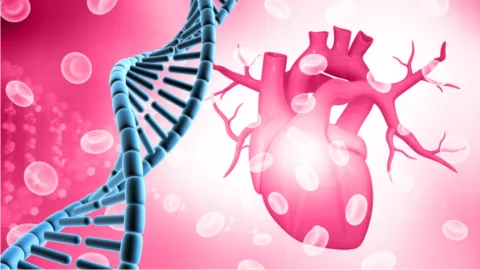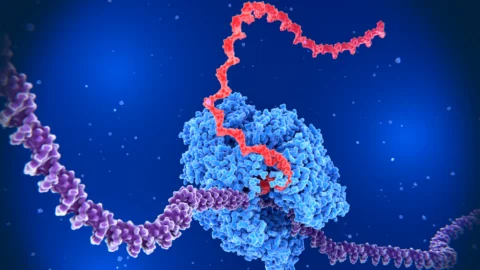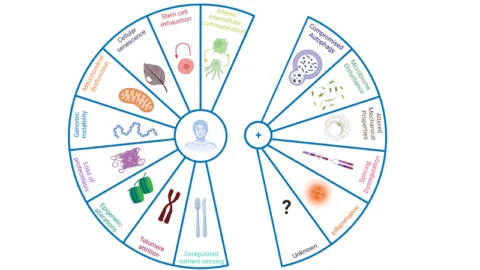February 15, 2024
In Nature Genetics, researchers have described how a defect in RNA transcription constitutes a previously undiscovered mechanism of aging. When the blueprint becomes harder to read Gene expression begins when a cell transcribes RNA from DNA protein codes. This process, like almost all others, is affected by aging. One key reason behind this is, of...
August 22, 2023
A paper published in Aging explains the relationship of long noncoding RNAs, which change with aging, to age-related macular degeneration (AMD). A disease of deposits and aging This paper begins with a discussion of AMD and its prevalence. AMD is the most common cause of vision loss in people over 70 years old [1]. Its...
July 10, 2023
A paper published in Aging goes into detail about the proteins and RNA pieces that increase and decrease with aging, suggesting a multiple-clock approach to biomarkers. Blood proteins change with age The researchers start out by discussing existing clocks based on such measurements as imaging [1] and epigenetic methylation [2], which is the most well-known...
April 25, 2023
Scientists from Duke University have found a way to make adult fibroblasts differentiate into cardiomyocytes, which might help develop better heart attack treatments [1]. The imperfect repair HeartThe heart is a four-chambered organ located between our lungs. Blood is pumped by the heart through two loops, one to the lungs, oxygenating the blood, and the...
April 13, 2023
Research published yesterday in Nature has described one way in which RNA sequencing changes in the cell with age and how this may be linked to lifespan. Transcriptional elongation Transcriptional elongation is a fundamental biological process, as it affects the basic steps involved in the production of RNA, which is responsible for executing the instructions...
August 29, 2022
Publishing in Aging five months after their panel discussion in Copenhagen, many well-known researchers have explained their reasons for wishing to add new hallmarks of aging to the existing paradigm. A new addition to an old paradigm What is Aging? The Nine Reasons We AgeAging is a series of processes that include direct damage, accumulation...






